
Valsalva Maneuver
Pinch Your Nose and Exhale
Pinch your nostrils (or close them against your mask skirt) and gently blow through your nose. The resulting overpressure in your throat usually forces air up your Eustachian tubes.
But the Valsalva maneuver has three problems:
It does not activate muscles which open the Eustachian tubes, so it may not work if the tubes are already locked by a pressure differential.
It’s too easy to blow hard enough to damage something.
Blowing against a blocked nose raises your internal fluid pressure, including the fluid pressure in your inner ear and possibly leading to an inner ear injury such as a round window rupture. So don’t blow too hard, and don’t maintain pressure for more than five seconds.
Swallowing—and various methods of equalizing—are all ways of opening the normally closed Eustachian tubes, reducing the pressure differential between the outer ear and inner ear. The safest clearing methods utilize the muscles of the throat to open the tubes. Unfortunately, the Valsalva maneuver that most divers are taught does not activate these muscles, but forces air from the throat into the Eustachian tubes.
Esta historia es de la edición Spring 2023 de DIVER Canada.
Comience su prueba gratuita de Magzter GOLD de 7 días para acceder a miles de historias premium seleccionadas y a más de 9,000 revistas y periódicos.
Ya eres suscriptor ? Conectar
Esta historia es de la edición Spring 2023 de DIVER Canada.
Comience su prueba gratuita de Magzter GOLD de 7 días para acceder a miles de historias premium seleccionadas y a más de 9,000 revistas y periódicos.
Ya eres suscriptor? Conectar
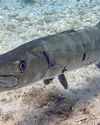
Fun With a Smart Phone
Compact digital cameras are fast disappearing in favour of smartphones. How about underwater photography?
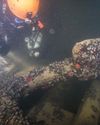
An Old Encounter
The mighty St. Lawrence River, in its Quebec section, has swallowed hundreds of wrecks through the centuries, many of them still unvisited.

Al is Coming to Diving
You are about to enter another dimension—a scuba dimension not only of sight and sound, but of mind. A journey into a wondrous land of imagination. Next stop…no, not the Twilight Zone…but the AI Zone! Yes, Artificial Intelligence is coming to scuba diving.

Preventing heat exhaustion
Beautiful sunny days have a way of coaxing us outside for adventuring, exploring, and diving. But it’s important to be mindful during your outdoor activities of the risks of heat-related illnesses— especially in the summer.
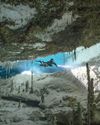
You Won't Impress Your Cave Instructor
I am so sorry for disappointing you!” My student apologized as he tossed his cave diving light into the gear crate and dropped his fins beside my truck.

THE PERFECT STORM
WORDS AND PHOTOS BY NICOLE WEBSTER

PROTECTING NAYAANO NIBIIMAANG GICHIGAMIIN
The Great Lakes Watershed
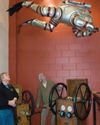
Phil Nuytten: DIVER
Industry luninaries remember diving legend Phil Nuytten, OC, OBC, DSc (hon), LLD (hon): magazine publisher, engineer, innovator, artist, businessman, eccentric, raconteur, magician, writer, husband, father... and-first and foremost-diver. (1941-2023)
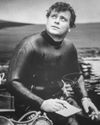
Phil Nuytten - SIMON FRASER UNIVERSITY CONVOCATION ADDRESS
A final Soundings column from DIVER Publisher and Senior Editor Phil Nuytten, taken from his 1995 address to students in British Columbia

NEW DEEP CAVE DIVING RECORD SET IN CHINA
Renowned Chinese cave diver Han Ting surfaced after a 12-and-a-half-hour dive to 910.1 feet (77.4m) in Jiudun Cave, a new Asia deep cave diving record. The dive was a part of the Duan’s Juidun Cave Features (DJCF) project.